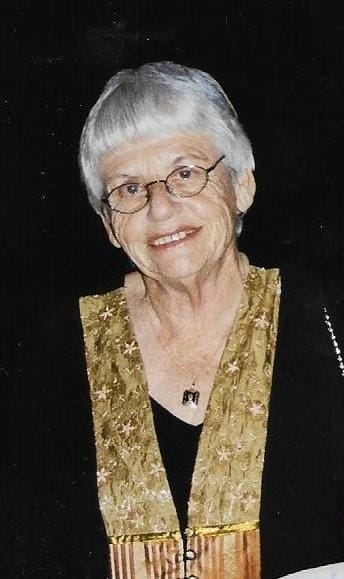Amichai Shdaimah, a mechanical engineer from Ardmore, has not heard anything about his stepmother, 84-year-old Ditza Heiman, since Oct. 9, two days after Hamas attacked her commune.
That Monday, she appeared in a propaganda video, with short clips showing terrorists breaking the windows of her home, taking her outside and putting her in a car, Shdaimah said. Relatives have been in contact with Israeli authorities but have received no additional information.
“This is the last evidence we have,” he told Metro. “From then on, it’s complete darkness. We don’t know where she is (or) her condition.”
Heiman, who has 20 grandchildren and five great-grandchildren, is one of the nearly 200 people Israeli officials believe are being held hostage in Gaza.
Shdaimah, 59, said Heiman took shelter in her safe room – a reinforced concrete structure attached to her house – early Oct. 7 as the attack commenced. Relatives in Israel and elsewhere were in touch with her.
“Then at 10 a.m., communication was lost,” he said. “She doesn’t answer anymore. We kept trying. Eventually, somebody answered in Arabic and they said, ‘Hamas, Hamas’ and disconnected.”
A few hours later, the family heard from a neighbor, who said he heard Heiman crying for help, Shdaimah recounted. The man saw Hamas fighters surrounding her, and he went back inside to hide.
Heiman, Shdaimah said, is a lifelong Israeli and founding member of Kibbutz Nir Oz, having lived there since the 1950s. Hamas devastated the communal village, which is a short distance from the border with Gaza. Of 400 Nir Oz residents, 180 were killed or taken hostage, according to the New York Times.
Shdaimah said he has helped compile a list of necessary medications for the missing residents of the kibbutz. The document has been passed along to Israeli officials, the Red Cross, and the U.S. State Department, he added.
Missile strikes are not uncommon in the kibbutz. But, in normal times, Ditzah’s safe room is used as a spare bedroom, and Shdaimah said he and his three children – now ages 19, 24 and 27 – often slept there during annual trips to Israel, where Nir Oz was usually their first stop.
“It was a good place to land and get over the jet lag,” said Shdaimah, who grew up in Israel and immigrated 26 years ago to the Philadelphia area. “We know the kibbutz very well.”
Heiman is always prepared for visitors with a warm greeting and good food, he said. Over the years, Nir Oz became a favorite spot for Shdaimah and his family, and his children consider her their grandmother.
Though Shdaimah’s father is now deceased, frequent telephone calls keep his family in touch with Heiman, and his children continue to visit her on their own trips to Israel.
“I would say she is the core or the rock of the family, somebody who everybody comes to,” he said. “She knows everybody’s birthdays. She calls everybody on their birthdays.”
As a middle-aged woman, Heiman earned a master’s degree and became a social worker in the nearby city of Beersheba, retiring at age 80. In addition to Shdaimah and his two siblings, she has four biological children.

Many of Shdaimah’s other relatives were vacationing, due to the Jewish holiday, and not directly harmed in the Hamas attack. A rocket destroyed a house adjacent to his brother’s in Ashkelon, and the family has evacuated to central Israel.
“Except her, we have good luck, I would say,” he said.
Shdaimah said he and Heiman’s other family members want Israel to focus on freeing the hostages, though he acknowledges the difficulty of the situation, as fighting continues.
“What Hamas did is unbelievable and awful,” he said. “From Israel’s point of view, it is just unacceptable to have Hamas still governing or still having military capabilities in the Gaza Strip.”
“On the other hand of course, we want the hostages to get out,” Shdaimah continued. “How do you get the hostages out? You need some negotiation, which we don’t see happen.”



























